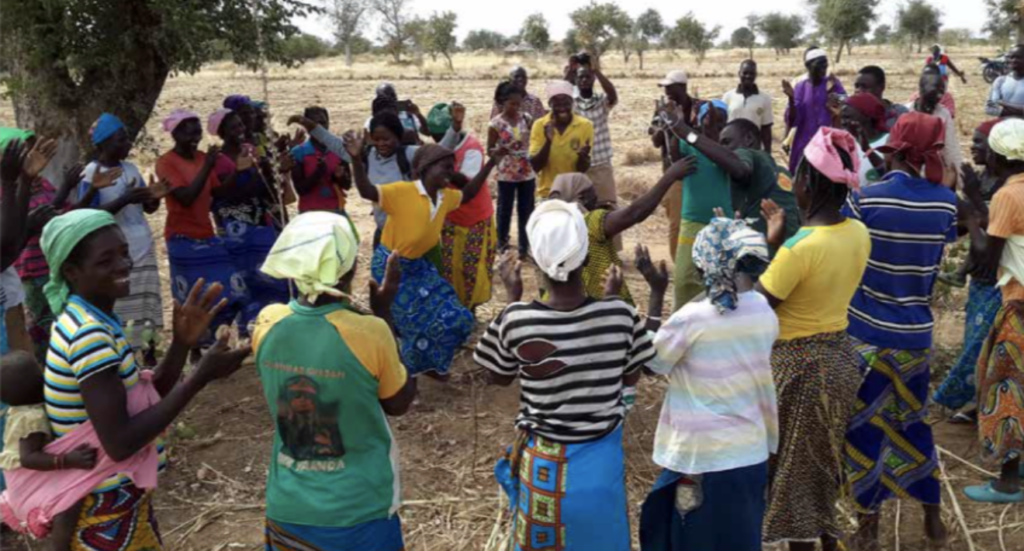Groundswell International Publishes Brief: “Scaling Agroecology in the Sahel: Elements of Good Practice – A Guide for Civil Society”

“There is a lot of learning that still needs to be done about how to scale or amplify agroecology,” says Peter Gubbels, Groundswell’s Director for Action Learning and Advocacy in West Africa. “Some valuable principles have been identified, but there are not a lot of good, practical examples of how to do this. What are the steps and pathways? It is a crucial area of learning because we have to scale agroecology effectively to transform and fix our global agricultural and food system.”
The recent IPPC report (Intergovernmental Panel on Climate Change) emphasizes nature-based solutions as the best way to adapt to and mitigate climate change. We have to change industrial agriculture. It also comes down to how 500 million family farmers across the world farm. They are the ones who produce 70% of the food people consume. Major resources need to be invested in these solutions, but there is a big risk of a top-down, cookie-cutter approach that would fail for the same reason that so many large scale initiatives fail.
Tsuamba Bourgou, Groundswell’s coordinator for West Africa emphasizes: “There isn’t enough attention to involving communities, farmers’ and women’s organizations and movements in leading the process. That is the difference between scaling agroecology and scaling a single technology or franchise. Agroecology has to be adapted to each ecological, social and cultural context, and that requires communities and farmers organizations leading the process. For those of us providing support, it requires that we systematically involve and engage them in the ongoing process of innovation and transition. Farmers have to be leading agents of change.”
“While each context demands specific steps to scale up agroecology, this guide provides very practical insights into concrete strategies that work in the Sahel,” says Janneke Bruil, co-author of the briefing. “The progressive integration of women’s self-empowerment, new types of governance and nutrition into agroecology is key. In addition, experience shows that issues related to equity and inclusion are fundamental in the scaling process, in order for everyone to be on board. It is true that others have pointed at these factors too. But this guide offers new insights as to how to do this”
“We can’t overemphasize how urgent the task of scaling agroecology is,” adds Gubbels. “Climate change is already having a huge impact on food production, food security and people’s lives around the world – especially the most vulnerable who have done the least to contribute to it. We can’t be content with islands of success or scattered projects. We hope this paper will contribute to the action and learning so many are engaged in, on how to scale agroecology to address the crisis.”
